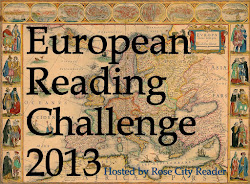 A Sand County Almanac
A Sand County Almanac was published in 1949, a year after Aldo Leopold's death, and remains a formative work of conservation philosophy.
There are three parts to the book. The first, the Almanac section, is a collection of 12 essays, labeled by month, discussing the "wild things" of Leopold's farm in the "sand counties" region of Wisconsin. Birds are a recurring topic, as are trees, prairie grass, weather, hunting, fishing, and the ecology that connects them all.
The second part, "Sketches Here and There," includes essays inspired by places: Wisconsin, Illinois and Iowa, Arizona and New Mexico, Chihuaha and Sonora, Oregon and Utah, and Manitoba. Although the subjects vary, Leopold's consistent theme is how human access to wilderness and mechanization – well-intentioned or not – has altered the land's natural system.
In the last section, "The Upshot," Leopold raises philosophical questions about why and how to correct the ecological imbalances created by man's use of the land. He advocated a "land ethic" that considers aesthetic and other non-economic interests when making land-use decisions.
Leopold's tone is musing rather than didactic. His position could be described as small-c conservative, with the goal of conserving the wild parts of nature while accommodating man's use of her resources. He acknowledges the paradox inherent in these goals:
But all conservation of wilderness is self-defeating, for to cherish we must see and fondle, and when enough have seen and fondled, there is no wilderness left to cherish.
He offers no solution to this dilemma, criticizing private land owners, government programs, and consumers alike. He sees conservation as "too large, too complex, or too widely dispersed to be performed by government," and concludes that an "ethical obligation on the part of the private owner is the only visible remedy for these situations." But once proposed, Leopold offers no method to create such an ethic. We still wrestle with the same environmental conundrum.
OTHER REVIEWS
If you would like your review of this book listed here, please leave a comment with a link and I will add it.
NOTES
Aldo Leopold inspired many environmentalists and conservation organizations, including the
Property & Environment Research Center (PERC) in Montana and the
Sand County Foundation, based in Madison, Wisconsin, which manages Leopold's old farm. Among other things, the Sand County Foundation works on
removing dams to restore Wisconsin's natural floodplain.
A Sand County Almanac has been on my TBR shelf for years. I finally read it as one of my non-fiction choices for the TBR challenges I am doing this year: the
MT. TBR CHALLENGE (hosted by Bev on
My Reader's Block) and the
OFF THE SHELF CHALLENGE (hosted by Bonnie on
Bookish Ardour).




